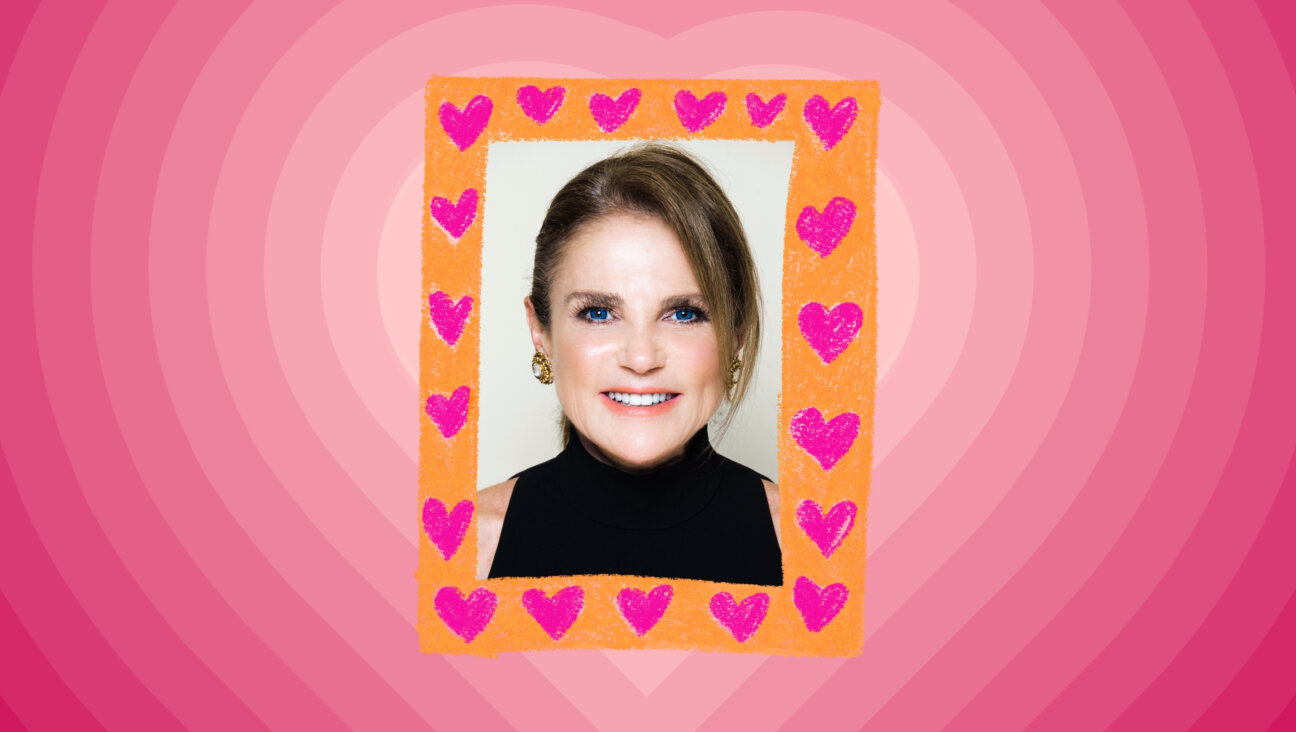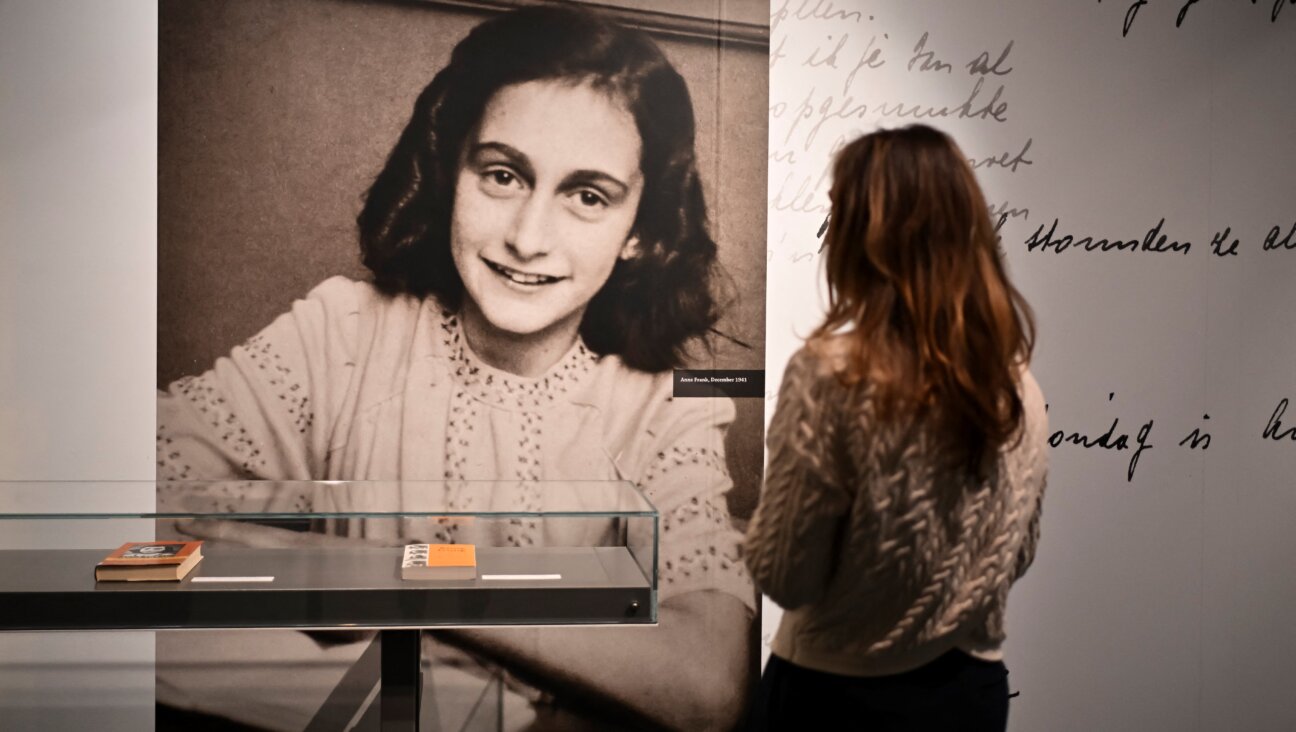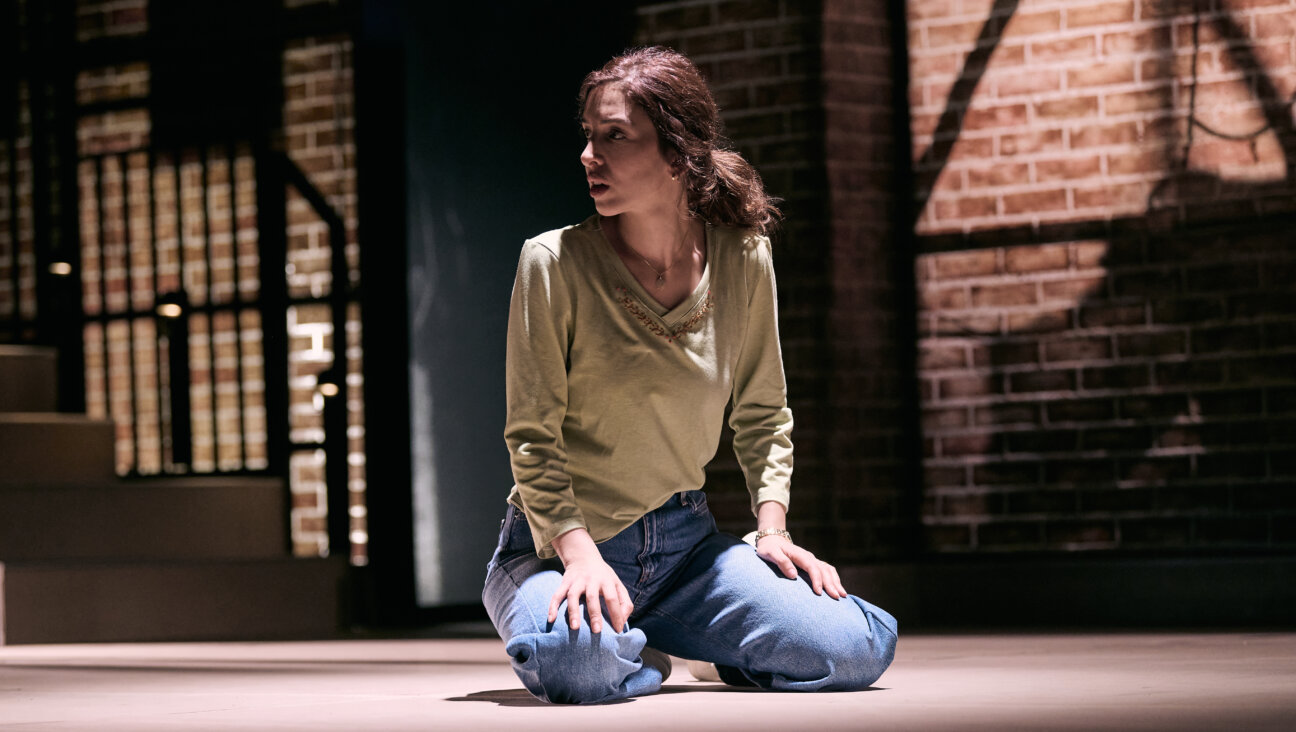Honoring The Legends Of The Maccabiah Games

Maccabiah Games Image by Getty Images
Jane Katz was wearing red. But she remembers the first jacket she wore at the Maccabiah Games — it was made for a man. This was not a good idea to the pioneering athlete.
“I believe the first Title IX really began at the Maccabiah Games,” she said, good-naturedly at a remarkable and unusual New York event: A luncheon honoring 20 of America’s athletes and leaders at the games.
The games are held every four years in Israel and attract a staggering number of Jewish athletes, 10,000 from more than 80 countries.
But this event, the first of its kind in the Big Apple, was held at the New York Athletic Club, a historic institution, which in the past had a reputation of not allowing Jews to join. In fact, in 1962 Mayor Robert Wagner quit his membership in the club because it had no blacks or Jews.
But Jews filed in by the dozens for the event on December 9, passing the sign near the revolving doors that read “Private Club.”
When the board of Maccabi USA looked into creating a “Legends of the Maccabiah,” to honor 20 major American figures who have competed or otherwise had a significant contribution in the Games, there was a lot of discussion about whether to hold it at the fabled NYAC. But the decision to stage it there is yet another indication of Judaism’s prominence in the mainstream.

Legends of the Games: 20 heroes of the Maccabiah games were honored at an event held at the New York Athletic Club. Image by Gerald Eskenazi
So there was a packed room of more than 300 people at the club that borders Central Park. It was as noisy as a bar-mitzvah, since all of the honorees brought family and friends. There were lots of smiles, and the atmosphere was very collegial — folks table-hopped and stopped talking only during the presentations or videos of the athletes reminiscing about their Jewish experience.
“We hope to make it an annual event,” said David Snyder, the group’s executive director. “It demonstrates the impact of the Maccabi experience. The relationships made truly last a lifetime.”
For Jane Katz, who introduced synchronized swimming at the 1964 Olympic Games in Tokyo, her first trip to Israel and the Maccabiah Games became a defining moment in her career. This was back in 1957, when she was only 14 years old. “I became a prophet to tell people, ‘Come to Israel. I’ll see you poolside,’” she said.
The Games began in 1932, and evolved into one of the world’s largest sporting events. The last one was held in 2017; the next will be in 2021.
This year’s honorees included Mike Hartman, a former National Hockey League left wing whose career included a stint with the New York Rangers. They won the Stanley Cup in 1994, and even though Harman didn’t play in the finals because of an injury, he saw his name engraved on the cup, something that had never happened before.
“I brought the 1997 American team to Israel,” he recalled. “I was a player-coach. We were pretty good. But the Canadians were stacked and they won the Maccabiah Games hockey trophy.” A hockey lifer, Hartman says he still tells youngsters, “Don’t play hockey on Jewish holidays.”
Another honoree was internationally known shoe designer and manufacturer, Stuart Weitzman, who competed three times in the table tennis event (presumably not wearing one of his creations).
Although unable to attend the luncheon, Weitzman said, via a video clip, “Going to Israel was my own aliyah. I got more pleasure out of it than when Neiman-Marcus first bought my shoes.”
For Fred Schoenfeld (soccer) it wasn’t necessarily about winning. “It’s not how many medals we win, but how many people we brought over to Israel — 1,100 on the American team.”
To the Hungarian-born Dr. Alex Sternberg, the taunts of “Dirty Jew” he suffered as a youngster led him to learn karate. He has taught thousands of youngsters. And like so many of his fellow-recipients at the NYAC, he reflected on his Judaism: “You can be a Jew even if you are not orthodox and don’t wear a yarmulke,” he said.
Don Kent, a Maccabi USA vice president, told the crowd about the movement’s beginnings in 1895 in Constantinople, how it morphed into a worldwide event in 1932, and how it wound up at the New York Athletic Club in 2018.
“There’s a delicious irony in holding it here,” he said. “Not making a statement — we got the best deal.”
Gerald Eskenazi is a former veteran sportswriter for The New York Times.
A message from our Publisher & CEO Rachel Fishman Feddersen

I hope you appreciated this article. Before you go, I’d like to ask you to please support the Forward’s award-winning, nonprofit journalism so that we can be prepared for whatever news 2025 brings.
At a time when other newsrooms are closing or cutting back, the Forward has removed its paywall and invested additional resources to report on the ground from Israel and around the U.S. on the impact of the war, rising antisemitism and polarized discourse.
Readers like you make it all possible. Support our work by becoming a Forward Member and connect with our journalism and your community.
— Rachel Fishman Feddersen, Publisher and CEO























